One of the big questions I asked myself while in Japan was "why?" Just "why." Not the usual, little "why's" that accompany a trip to a foreign nation like, "why are squatty potties so hard to use?" Rather, I couldn't help being bombarded by bigger, more legalistic "why's." Why in a country where prostitution was illegal did I see signs and brochures for places like the "Love Action Club," with catalogs of girls to choose from and a probably-quite-sketchy number you could call? Why, in a country where underage drinking is outlawed, are you almost never asked to verify your age?
It seemed to me that several laws in Japan are only very loosely enforced. I started to think that maybe Japan was posturing—showing the world that these laws existed and meeting the standards expected of them on the world stage—but to the native (and sometimes foreigners) there are pretty obvious areas where these laws are simply not enforced. Many governments, and Japan in particular, have a system in place for following their rules to the letter of the law, but will abuse specific wording or create exceptions to allow certain behaviors to slip through the cracks unchallenged. These loopholes seem to inform quite a few areas of Japanese life, so I wanted to dive into a few of the different types of loopholes and attempt to analyze the "why" of it all.
Types of Loopholes
It's probably too ambitious to attempt to look at all the myriad ways any one government may attempt to skirt laws, so I'm just going to point out some of the major ones in some of the most widely noticeable categories. If any of you fine, upstanding, Tofugu-loving folks would post other observed loopholes or personal anecdotes in the comments, that would be a great way to increase our understanding. That said, this is what I found:
Alcohol Loopholes
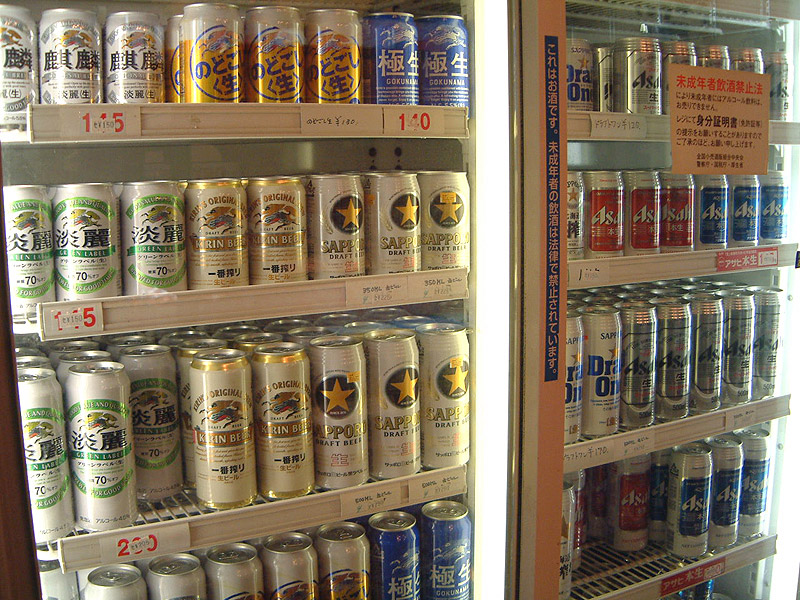
To understand that a double-standard exists with Japan's enforcement of alcohol, one must compare it to their handling of another controlled substance, firearms. Gun control is so heavily monitored and enforced in Japan that it is almost baffling to a Westerner, especially when compared to the culturally more lax attitude to alcohol and tobacco. We can see that these cultural differences really do inform regulation: So in the United States, whose Constitution contains a "Right to Bear Arms," firearm control is deemphasized. In Japanese culture, which stresses the importance of drinking between coworkers to seal business deals and foster bonds, it follows naturally that drinking laws would be similarly deemphasized. In Japan, where herds of salarymen stumble home each night, a law that penalizes people for being drunk in public would simply not work as it may in other societies. These are not yet loopholes, however. These are cultural differences in the creation of laws. The loopholes arise when dealing with a consequence of these cultural differences: underage drinking.
To quote a very relevant 2013 article by Koichi (go read it!), "the Japanese underage drinking law came into effect in 1922. It has been ignored ever since." In 1922, when faced with the evidence that underage drinking was hazardous and being newly opened up to a global stage that had already made that behavior illegal (and, shoot, the U.S. was even in the middle of an outright alcohol prohibition), Japan caved to the pressure and implemented a similar law of their own. However, it wasn't long before the Japanese underage drinking law became so unenforced that it really only existed on paper and not in practice. The Japanese law as written did not put any restrictions or penalties in place for vendors, machine or otherwise, that sold to underage persons. Nothing really changed.
Whaling Loopholes
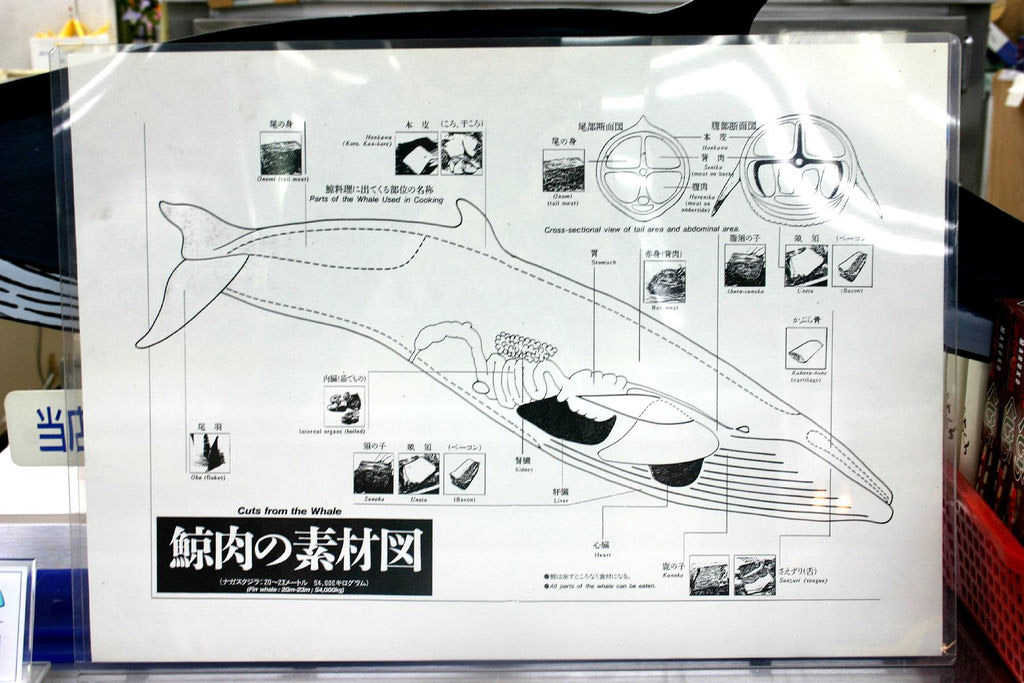
Japan's loophole with whaling is the only loophole on this list that circumvents international law and as such has been heavily criticized by the global community. To understand why, we need to discuss the history of the law that Japan is evading: the International Whaling Commission's 1982 moratorium on commercial whaling. Around the late 1970s, the anti-whaling movement was beginning to pick up steam around the world. Eventually these pressures bubbled into an international treaty that set out to ban all whaling, only allowing two exemptions: scientific whaling done for research, and aboriginal-subsistence whaling (for Inuits or other native groups that wouldn't be able to adequately meet their food needs without the traditional food source). With whaling being an important part of native food and culture in Japan, there was a desire domestically to fight this legislation. Japan, along with Norway, Peru, and Russia (other countries with a significant degree of commercial whaling) launched formal objections to the moratorium. It wasn't until the US threatened to reduce the Japanese fishing quota within American waters that Japan accepted the moratorium. In 1988, when the US reduced the Japanese fishing quota anyway (sort of a dick move), the Japanese were left to decide what to do in response. It was around this time they opted to employ something they had begun to get very good at using—loopholes.
The Japanese government started issuing 'Scientific Whaling Permits' left and right to allow their whaling to be carried out under the guise of lethal scientific research so that they could still meet the provisions of the moratorium. However, the way the whaling was handled did not significantly differentiate it from earlier commercial whaling practices; the meat is still sold to certain fishmongers and finds itself in classy Japanese restaurants after the "research" is conducted. Even in the cases where actual research is carried out, it is not often published in reputable scientific journals and would usually be a more feasible experiment if tagging and catch-and-release strategies were conducted instead of lethal harvesting. Not only that, but the research results typically revolve around how to increase the efficiency of whaling or to convince the global community to remove the moratorium. Seems legit.
Gambling Loopholes
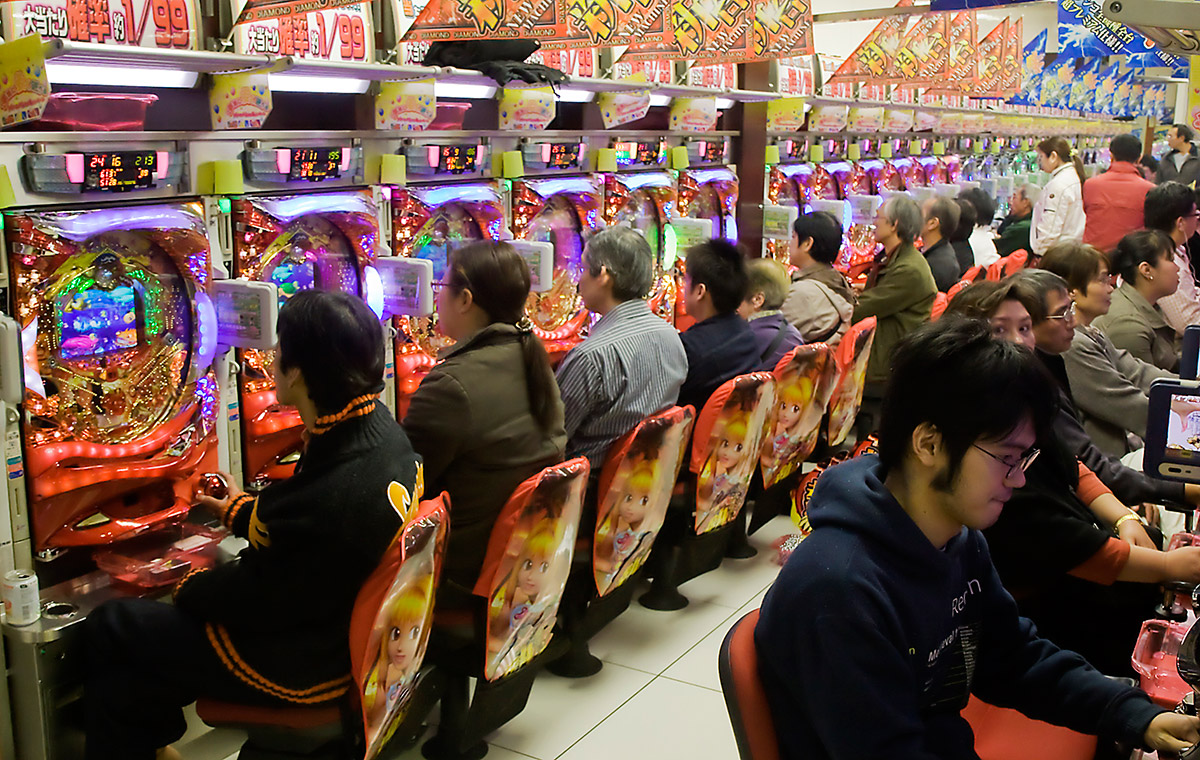
Betting on casino games, slot machines, mobile games, sports, and any other form of gambling with direct cash winnings is outlawed by chapter 23 of Japan's criminal code. However, the law specifically builds in a handful of exceptions in order for some money to be made in the ridiculously lucrative gambling industry. For example, betting on horse races and certain motor sports is specifically exempted by the law. Additionally, prefectures and big cities can still sell lottery tickets and hold a variety of lottery events with direct cash payments without violating the law. However, for the most part this law is upheld to the letter. Yeah, that's right, gambling is actually illegal in Japan. I guess that explains the absence of traditional casinos (for now). But still you wouldn't think of gambling as illegal when looking at the prevalence of pachinko parlors. Surely, pachinko counts as a form of gambling, right? Not according to Japanese law, and trust me it has taken a fair amount of time and finagling for pachinko to reach the loophole-filled status that it currently enjoys.
Owning and operating a pachinko parlor isn't illegal. Like the aforementioned horse racing, it has been specifically exempted by the law for significant cultural and historical purposes. The only thing that would make it illegal would be if there were direct cash payouts on site, and that's exactly how pachinko proprietors skirt this law. At the parlors themselves, people will pay to sit down and play pachinko and their winnings are given to them in the form of gold tokens, metal balls, or something else innocuous. At the parlors, there are prize counters that contain all kinds of kitschy prizes like rice cookers, jewelry, handbags, chocolates, cigarettes, TVs, DVD players, etc. At first glance, the whole system just looks like a glorified version Chuck E. Cheese. The appeal is that you can simply exchange your winnings for a receipt at the prize counter instead of an awkward prize. You can then take that receipt to a winnings desk outside of the premises and turn it in for cash. These exchange stations are usually right next door and owned and operated by the same people as the pachinko parlor. Yet, because they didn't give you a direct cash payout on site, and you actually had to walk a couple feet, there is zero infraction in the eyes of the law. Everyone involved in pachinko, including law enforcement, parlor employees, and most players are aware of exactly how this system works and how it skirts the laws. But they acknowledge that it's basically just a legal way to gamble while following Japanese penal code.
Prostitution Loopholes
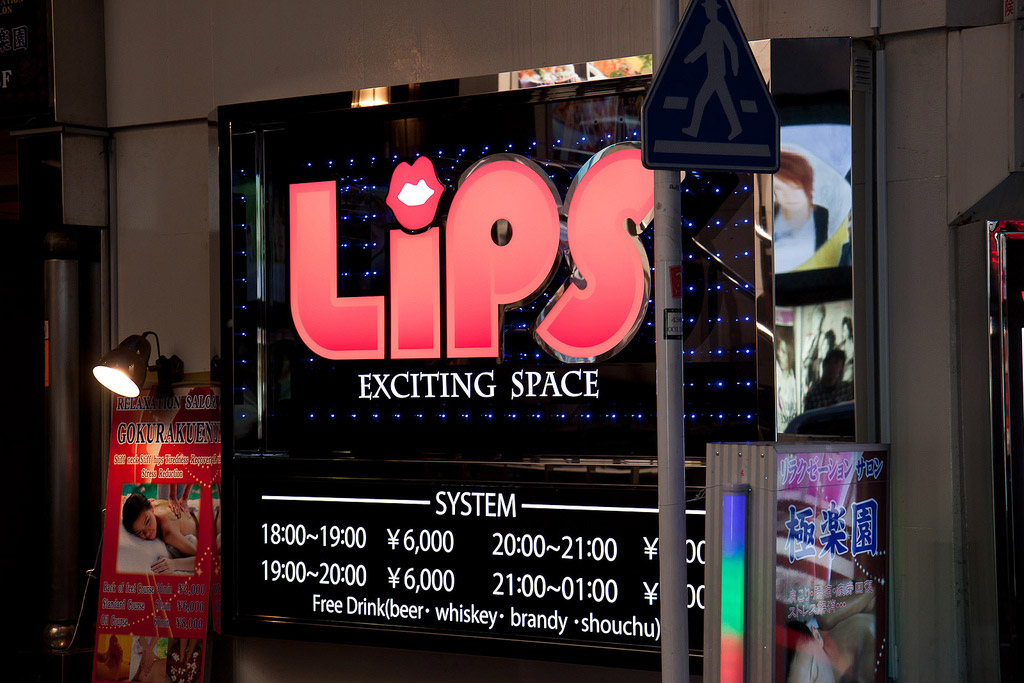
Considering the tradition of mizuage among geisha, sexuality has played a major role in Japanese society. Prostitution in Japan was even a state-sponsored activity, with the government licensing and monitoring brothels until 1946 when this practice was banned. After the ban, prostitutes were no longer given guaranteed national contracts, but prostitution was still legal and widely practiced. Many brothels would use cafes or other legitimate businesses as fronts. Pressures from the domestic lobbying group, "The National Federation of the Brothel Trade," which offered money and free brothel trips to politicians, made it very difficult for reform to reach the Japanese sex trade. It wasn't until twelve years later in 1958 that the Anti-Prostitution Law was passed and actively enforced. With prostitution outlawed, it took many creative loopholes to keep brothels in operation.
The specific language of the Anti-Prostitution Law only forbids "vaginal sex in exchange for money", which renders other sex acts permissible. Two of the most common modern variations on Japan's brothels are fashion health (fasshonherusu ファッションヘルス) facilities and soaplands (so-purando ソープランド). Fashion Health centers are typically advertised as massage parlors, but they offer much more than just massages. As a matter of fact, the only thing they can't offer is vaginal sexual intercourse. In this case, the letter of the law is upheld.
Soaplands are merely advertised as locations where patrons will be bathed by partners of their choice. However, they offer much of the same services as brothels. In fact, they can often go a bit further and circumvent the prostitution law for their clients. This is where the most elaborate exploitation of a loophole can be seen. The specific wording of the law forbids only, "intercourse with an unspecified person in exchange for payment." The key word here being: "unspecified." Many soaplands, and a handful of other sexual services, have been able to operate legally in Japan by making the claim that the sexual act is being exchanged between people who have become acquainted and are no longer "unspecified".
"Is it nonsense to deem that the couple fell in love while massaging at a soapland? Yes. But that is how things have operated inside the Japanese legal framework for over five decades," says Kansai University professor Yoshikazu Nagai, who has extensively studied the modern Japanese sex industry.
These industries are well-regulated in Japan, they must report to police to register as one of the following designations: soaplands, fashion health massage parlors, call-girl businesses, strip clubs, love hotels, and adult shops, and are legally bound to only operate in the capacity of the category they choose. However, that doesn't stop many of these industries from abusing the wording of the legislation which makes it impossible to criminalize these forms of prostitution. The semantic arguments have become so institutionalized that prostitution in many cases is essentially legal.
Child Pornography Loopholes
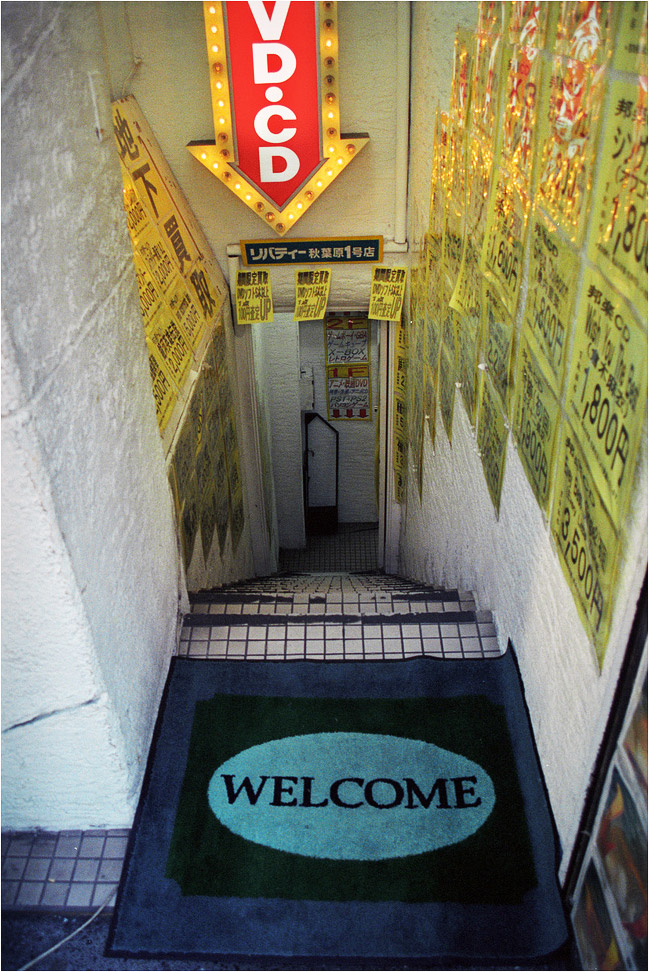
Okay, here it is: we're going to get a little heavy here. There's no doubt that Japan really values the aesthetic of cuteness and that this naturally translates to the aesthetic of youth (It's also a bit of a chicken/egg situation). In Japan, youth is beauty. This is why foreign models chosen to represent Japanese companies often need to fit a certain standard of youthful beauty that requires them to be between the ages of 13 to 16. It's the reason yaeba teeth are popular, and it is the reason that the lolicon genre and fandom exist. For the unaware, lolicon is typically defined as "discourse or media in Japan focusing on the attraction to young or prepubescent girls." We'll add that this type of media is typically in the form of drawn or animated depictions of sexualized prepubescent girls as real-life depictions may violate Article 7 of the Japanese constitution that criminalizes the production of child pornography that was ratified in 1999 (They dragged their feet on that one). In Japan, possession and production of explicitly sexual cartoon lolicon is legal, although still contentious. It's legal in Japan. No loopholes there. However, it gets a little blurrier when discussing non-simulated child pornography.
After 1999 child pornography was outlawed, but only on the following grounds, "production, transport, import and export, as well as possession of child pornography for the aforementioned purposes." It became illegal to make and sell child pornography internationally. However, there were absolutely no consequences to those that owned it. None. They had simply to prove that they owned it for personal reasons and had no intention to produce, transport, import, or export it, and the law couldn't touch them. It wasn't until Wednesday, June 18th, of the year 2014 (I'm not even kidding) that Japanese lawmakers bowed to international pressures and passed a law making the mere possession of child pornography a crime that could result in a year in jail or an up to $10,000 fine. This, of course, left lolicon depictions untouched as they are considered important both economically and for freedom of expression. Has Japan finally moved closer to the international standard for regulating child pornography? The law provides Japanese citizens a year to dispose of any child pornography they possess before risking any prosecution. In this age of technological mass communication and information duplication, that is a pretty lenient loophole. It's as if Japan doesn't really want to prosecute child pornographers, instead providing a gentle slap on the wrist and saying, "Hey, you might want to get rid of that."
Another blatant loophole that continues to blur enforcement of this law is media featuring Japanese junior idols, child models that usually start between the ages of 13 and 15. While the above types of child pornography are largely distributed in hushed tones and on the dark corners of the internet, junior idol magazines, photo books, and videos, can be purchased in legitimate storefronts across Japan. When I was in Osaka, I saw a shelf full of junior idol DVDs, mostly suggestive swimsuit modeling, that was literally across the aisle from shelves of hardcore hentai and sex toys. It's extremely hard to imagine that those DVDs were being sold for an artistic purpose and not a pornographic one. There have been prosecutions of production companies whose junior models have crossed the vaguely defined line between child modeling and child pornography, resulting in several videos being removed from Amazon.jp's online store. This is a start, but it hasn't even slowed down the multimillion dollar junior idol industry.
About That "Why" Question
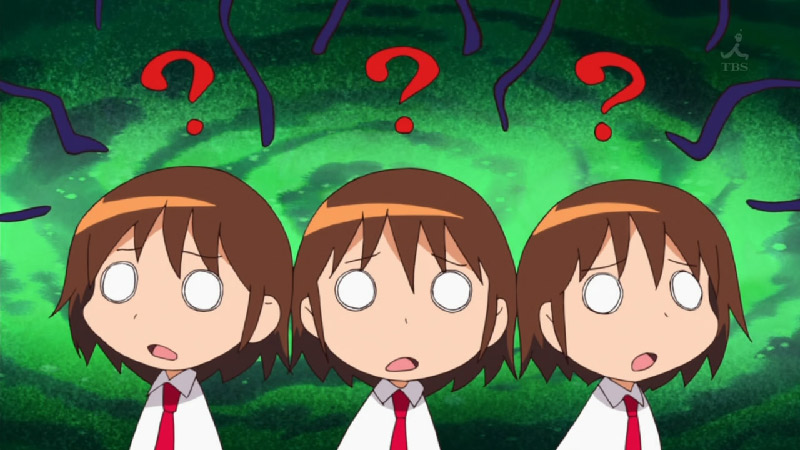
Now that I've brought up this diverse list of loopholes in the Japanese government, you, dear reader, should have a few "why's" in your mind as well. Many of the questions raised by this pattern of loophole flouting in Japanese politics do not have easy answers. Some have argued that the loopholes are exploited by the Japanese public and it is the ineffectiveness of the Japanese government's enforcement of laws that allows loopholes to thrive. However, Japanese law enforcement seems to institutionalize and actively allow many of these loopholes, so I think differently. I speculate that one of the main reasons for this abundance of loopholes isn't ineffective enforcement or even political corruption (though parts of it can certainly seem symptomatic). It seems to me that what Japan is really after is preservation of the status quo.
From whaling, to prostitution , to a lax drinking culture, to pachinko parlors, to retaining the legality of lolicon, the exceptions are typically made simply to maintain things as they have always been. In fact, it is my belief that many of the laws that these loopholes circumvent would not have been ratified if it weren't for the intense pressure from the global community. Japan wants to appear as if it is matching expectations of behavior and etiquette with the Western world, while still enjoying certain behaviors that, while deemed inappropriate elsewhere, are considered core to the Japanese way of life.
These loopholes in laws serve a very similar role domestically. Instead of appeasing the moral sensibilities of those overseas, these laws can also appease Japanese citizens by assuring them that legislation has been passed that will protect them from problems like prostitution and underage drinking, when in reality nothing is truly being enforced. For instance, take this short anecdote from fellow Tofugu writer, Verity Lane:
The prefecture knew that teachers were working too many hours, and they were being criticized. So they shortened the day by 10 minutes. The previous start time was 8:00. Now it's 8:10. However, the schools didn't change the time of the morning meeting (at 8:10) so teachers have to be in school by 8:00 anyway. Nothing changed, but there's some proof that the prefecture 'did something' if anyone criticizes them about working hours again.
This is a simple example, but it is very telling because it supports this observable pattern of many Japanese regulations making changes on paper, but not truly enforcing them, or else building in exemptions that render the law meaningless. It isn't my purpose to deem whether these actions are ethical or unethical, but merely to bring this interesting idea to the forefront. I really look foreword to hearing the discussions and comments that this article will elicit. Have you observed these patterns in Japanese society? Where do you see other loopholes? And, let us not forget, why?
